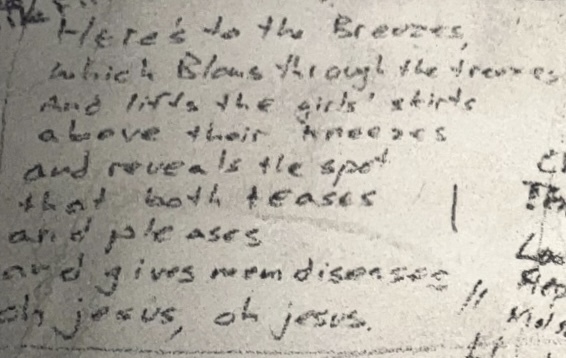Where Do We Participate
Greek life is the dominant social space at Dartmouth College with nearly two-thirds of the student body affiliated with one of 14 fraternities or 8 sororities. It is no secret that members of these social spaces tend to hail from a higher socioeconomic standing than the average student. Even more alarming, yet no less known, is the relative homogeneity of people affiliated with Greek life: generally cis, white, straight men and women. Although recent years have seen an increase in diversity due to concerted DEI efforts, there is still much ground to be made before the members of Greek life reflect the overall student population. Given their status as the hallmark social spaces on campus, Greek spaces also host a variety of student groups’ showcases and performances. From dance troupes to a cappella, student bands to improv groups, participation as both a performer and as a member of the audience takes place in fraternities and sororities regularly.
That they provide a space for (some) students to socialize, (sometimes) lead to close groups of friends, and (perhaps) improve mental health for students who enjoy human connection is (maybe) true. However, a deep dive into the inner machinations of the Greek system unearths concerning patterns where perpetuated social hierarchies and tokenization of the highest form do not just continue to exist but thrive. Even within the memory of the last graduating class, there have been a string of sexual assaults that have soured these revered social spaces for many.[1] The numbers are horrifying. The most recent sexual assault survey performed by the Office of Institutional Research found that 14.3% of the student body has been on the receiving end of nonconsensual sexual contact. For women, this percentage is 21.5%. For members of the transgender or genderqueer community, it is 25.5%.[2] Although these numbers are not directly linked to Greek life, the general consensus is that Greek spaces have historically promoted rape culture.[3]
Consider the infamous Rape Guide incident in 2014. A male student posted a rape guide targeting a freshman girl on a Dartmouth blog, explaining in detail how to get her to perform oral sex. Going to a fraternity for the first time after the blog, she was sexually assaulted.[4] More disconcerting was her comment following the assault:
“I got told it happens all the time. I hope that maybe someone reading this will do something, because I have no one to turn to.”
This story made national news, yet efforts to prevent sexual assault at Dartmouth, while carried out with good intention, seem to only be making nominal progress. For sexual assault survivors or allies of those who have been sexually assaulted in Greek houses, entering those spaces may be out of the question. Perhaps it might be detrimental to their mental health, or worse, another assault may occur. In reality, the “open to all” messaging that fraternities proudly advertise might be quite contrary to the reality that many members of the student body face.[5] Consider the following song, which is etched into the wall of an “open and inclusive” fraternity on campus:
“Here’s to the breezes,
Which blows through the treeses [sic]
And lifts the girls’ skirts
Above their kneezes
And reveals the spot
That both teases
And pleases
And gives men diseases
Oh jesus, oh jesus.”
These words, if not blatantly demeaning to women, are certainly not inviting, especially in a space that is known to be a hotspot for sexual assault. When these words are written in social spaces, spaces where musical participation occurs, it makes these words seem like part of an institutionalized and irrefutable truth; that women “give men diseases” is now etched into the musical participation of everyone who is in that space.
We have begun to unravel the question: who gets to participate? In truth, this question is intricately intertwined with another question: where do we participate? Framing musical participation in the context of setting might reveal social dynamics deeper than, say, an audition process. While things like the a cappella audition process reveal biases on a micro level, examining something larger — in this case, space — can illuminate larger injustices at Dartmouth.
[1] See https://www.thedartmouth.com/article/2021/07/who-really-runs-this-place and https://www.thedartmouth.com/article/2021/07/khan-fraternity-culture-cannot-be-saved
[2] https://www.dartmouth.edu/oir/2021_sms_student_results.html
[3] https://www.thedartmouth.com/article/2022/05/verbum-ultimum-safety-first
[4] For more, see https://www.huffpost.com/entry/rape-guide-dartmouth_n_4869092
[5] College administrators (and fraternities themselves) often advertise the open-door policy to the student body and even potential students. Fraternities must register any event that has alcohol and must let in all students that present a valid Dartmouth ID at the door.
Previous: The Hovey Murals and Sonic Space -- Next: Phil Hanlon Take a Shot!

